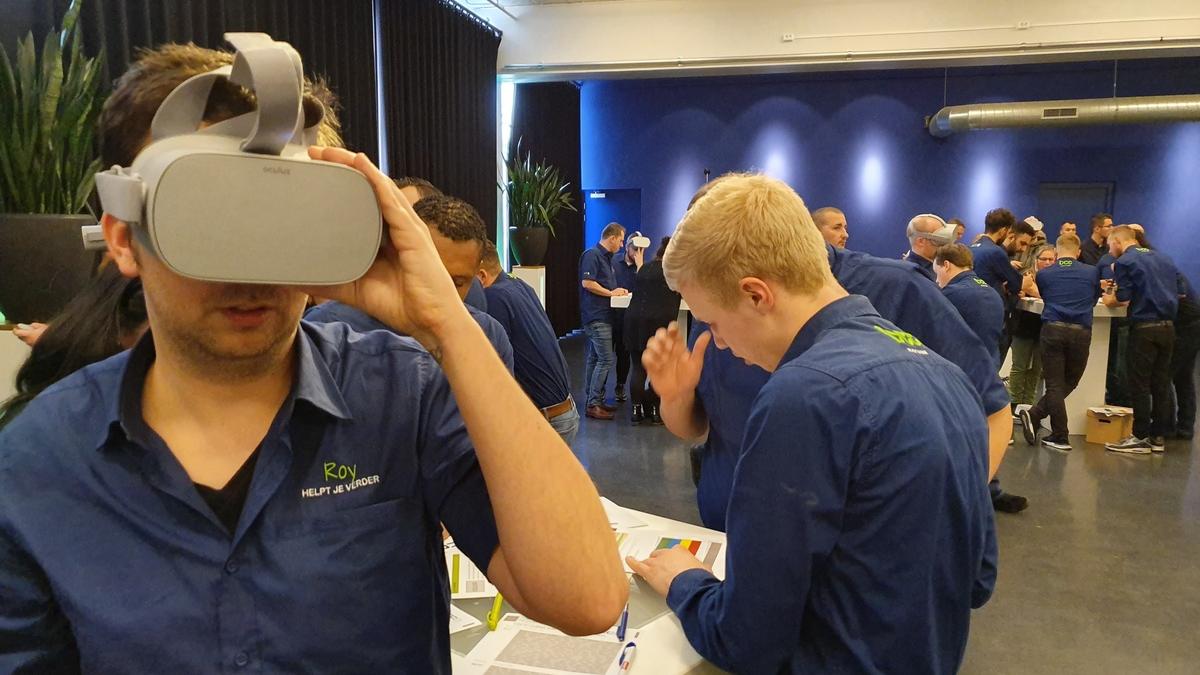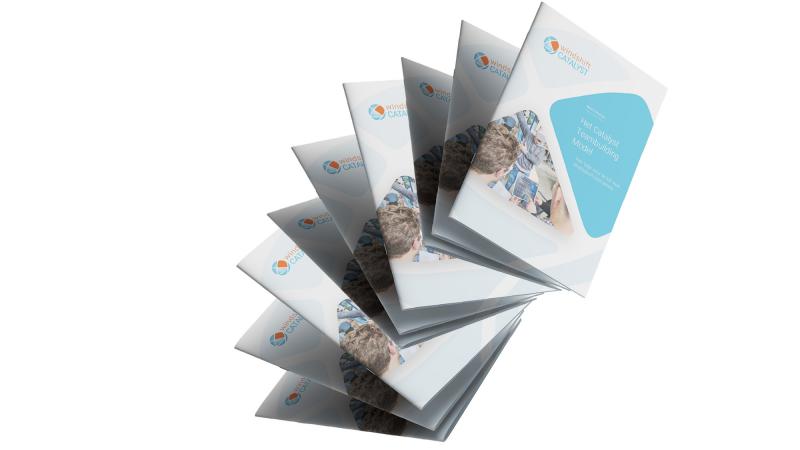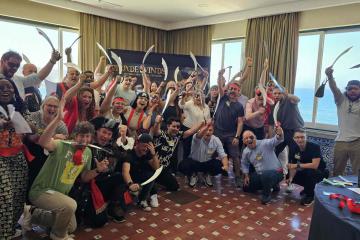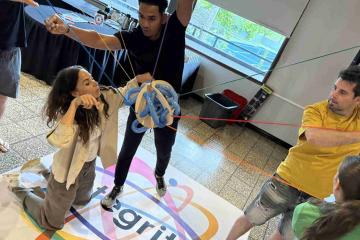Human Skills, often referred to as soft skills or interpersonal skills, are essential competencies that enable you to communicate and collaborate effectively with others in a variety of situations. It is an umbrella concept and includes effective communication and empathy, among other things. Effective communication allows you to communicate ideas clearly and understand others well, which is crucial for teamwork and problem-solving. Empathy involves understanding and sharing the feelings of others, which strengthens relationships and facilitates conflict resolutions.
Human Skills are crucial to being successful in your job. While technical skills can help you get an interview or an entry-level position, human skills influence how others perceive you as a colleague, team member, or leader. These skills, including trust, collaboration and decision-making, are highly valued by colleagues and managers. Human Skills improve workplace interactions and significantly create a positive and productive work environment.
Human Skills are indispensable in both personal and professional situations. They improve interactions with others, help build and strengthen social bonds, and promote company culture. For example, remembering important details about colleagues is a simple example and can significantly impact social interactions and encourage others to participate more actively in communal activities.
Why Human Skills Are Hard to Measure
Measuring human skills is highly challenging because they are qualitative and subjective, making them difficult to quantify with traditional measurement methods. Unlike hard skills, for which you have a test or certification. Human Skills such as empathy, adaptability, and teamwork focus more on personal and interpersonal effectiveness. These can vary greatly from situation to situation.
One of the main reasons why Human Skills are difficult to measure is that they are context-dependent. The effectiveness of communication, for example, can change based on factors such as cultural norms, communication medium, and personal dynamics, making it difficult to develop standardized metrics that can be applied in every situation.
Moreover, Human Skills are always internal and often invisible until you show them in social interactions. For example, a person's ability to show empathy or take charge, if necessary, is only sometimes visible in a test environment.
Assessing these skills is subjective and can be influenced by the opinions and biases of others. This can mean that skills assessment could be more consistent depending on what the assessor thinks or expects.
Because they're hard to measure, there is no score for empathy. You can't pass collaboration or get a college degree in trust. Yet you probably know a colleague who falls short in at least one of the Human Skills. They are sometimes referred to as soft skills. Simon Sinek is clear about this and says: "Let's stop using the term 'soft skills' There is nothing soft about them".
What are the prerequisites for practising Human Skills?
We have seen how important Human Skills are in every organization and how they can greatly impact the work environment. The right environment is required to develop these skills. To effectively practice and develop Human Skills, you need several prerequisites to be met to improve the learning process:
- Safe environment: Creating a safe environment where you can express yourself without fear of criticism is the most important prerequisite. This fosters, among other things, open dialogue and constructive feedback.
- Diversity and inclusion: Interacting with diverse groups increases understanding and adaptability. Interacting with people from different backgrounds helps develop a broader perspective and improves one's ability to cope with different situations.
- Regular practice: It is obvious, but interaction with others, both in structured form and informal encounters, allows for the continuous practice of Human Skills. Almost every interaction can be a practical exercise in applying skills such as empathy, leadership and, for example, negotiation.
- Challenging situations: Exposure to challenging scenarios such as conflict or crisis management tests and refines Human Skills. You learn to apply them under pressure and what you still need attention.
These conditions provide the basis for learning and improvement and invite you to be continuously aware of your human skills and seek out situations where you can continue improving them.
How to Develop Human Skills?
Everyone understands the importance of Human Skills. But how do you develop these valuable skills? This requires continuous learning and conscious practice. Developing Human Skills goes beyond your working life. By continuing to develop them, you will become a better colleague, spouse, friend, neighbour, and sibling. Here are some effective ways to improve these skills:
- Training and Workshops: Participating in specific training and workshops focused on certain Human Skills such as communication, leadership or emotional intelligence can provide fundamental knowledge and practical skills. These programs often include exercises that you can perform in a safe and structured environment.
- Mentorship and Coaching: Working with a mentor or coach can provide personal guidance on developing Human Skills. They can provide feedback on your interactions and help set improvement goals based on their observations and experiences. Also, consider a peer group of colleagues with whom you work.
- Feedback: Regularly asking for feedback from colleagues, supervisors, and mentors about your Human Skills can provide insights into strengths and areas for improvement. Constructive criticism is invaluable for personal growth.
- Reflection: Engaging in reflective practices such as journaling can help you become more aware of your behaviour and interactions with others. Reflecting on day-to-day interactions and outcomes can help identify patterns and opportunities for improvement.
- Networking: Regularly participating in networking opportunities allows you to practice and refine your soft skills. Networking events challenge you to communicate, listen actively, and adapt to diverse social situations.
- Volunteering: Volunteering in roles that require teamwork, leadership, and communication can provide hands-on experience in using and improving these skills in real-world situations.
Each of these methods offers a unique approach to developing Human Skills. Combining them can provide a comprehensive development strategy that improves your ability to interact effectively with others professionally and personally.
Encouraging the practice of Human Skills among employees can significantly improve organisational communication and teamwork. Effective communication reduces misunderstandings and promotes efficiency, while strong teamwork skills lead to better collaboration and, ultimately, better results. In addition, such an environment promotes greater employee engagement and satisfaction because employees feel valued and understood.
Would you like to discuss how team building can improve your organisation's Human Skills? Contact us for a nice conversation.





